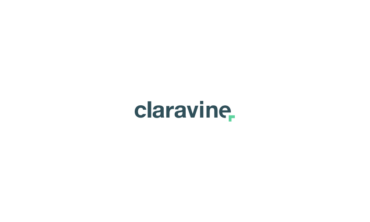Marketing and Analytics: What I’ve learned
 I’ve worked in digital media and marketing for almost two decades — but I’ve only been on the data side for a few months, since joining Claravine. There’s an astonishing amount to absorb! As I’m going through it in real time, I’ve decided to write down my observations. It will be fun to check back in a couple of years, to see how my perspective continues to change.
I’ve worked in digital media and marketing for almost two decades — but I’ve only been on the data side for a few months, since joining Claravine. There’s an astonishing amount to absorb! As I’m going through it in real time, I’ve decided to write down my observations. It will be fun to check back in a couple of years, to see how my perspective continues to change.
Here’s what I’ve learned so far:
- Clean Data is Everyone’s work. I already know this lesson intuitively, and I’ve had real-life instances of learning it. For example, I was in charge of the team that implemented Salesforce as a CRM at one of my previous employers. I hired a talented data manager, and we went through the admin training together — and quickly discovered that we couldn’t pull meaningful pipeline data because many of our sales team never keyed in moments of customer contact. It was a months-long exercise to train everyone on new protocols, and then hound the team regularly to change their work practices. Even after all that, I only had 80% confidence in our pipeline reports. I’ve learned this in a new way since joining the world of campaign analytics. eCommerce managers and marketers know the capabilities of tools like Adobe and Google Analytics, but they often don’t understand how easily data capture can get broken and, as a result, how their reports can mislead them.
- No one wants to own bad data. There’s a perception in the industry that bad data is the enemy. It’s also a kind of hot potato — ready to be tossed into someone else’s lap. Bad data is usually attributable to whole systems, and not to the work of any one individual, which leads to avoidance and a kind of learned helplessness (if we don’t look for errors in the data, perhaps there aren’t any! Or, if there are errors, perhaps we won’t be blamed for it if someone else finds them. Or, maybe our data is good enough as it is…) It’s almost like the stages of grief: anger, denial, bargaining. That’s human nature: when people don’t know what to do about a problem, the tendency is to look away. Audits might reveal a problem, so they’re often delayed. Communication becomes an ethical pickle, leading to a sort of “don’t ask, don’t tell” situation. Do we admit to our lack of confidence in the data? Quite often we don’t wish to.
I’m excited to be working on the data side of digital marketing. I want to challenge myself to learn it, and I want to help our clients confidently evaluate the current stage of their company’s data quality assurance practices and map out next steps to improve it. Let’s start a clean data revolution! Who’s with me?


